Myanmar floods: Helping communities to recover
Mrauk-U, the old capital of Rakhine state, is one of the townships most affected by the floods, with many areas inundated. The floodwaters have swelled the country’s major river systems. CC BY-NC-ND …
Mrauk-U, the old capital of Rakhine state, is one of the townships most affected by the floods, with many areas inundated. The floodwaters have swelled the country’s major river systems. CC BY-NC-ND …
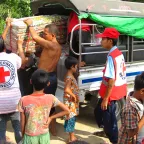
An eleven-year partnership with the Comprehensive Community Based Rehabilitation in Tanzania (CCBRT) Hospital and the ICRC came to a successful and sustainable closure by end 2022. The ICRC's …
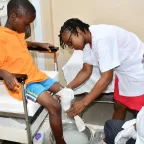
11-09-2023 Geneva (ICRC) – The International Committee of the Red Cross (ICRC) today presented measures designed to maximize the effectiveness of its humanitarian assistance in line with its initial …
… sudden realisation that there were actual jobs that they could do to help people that …

… these workers are prevented from doing their jobs because of safety concerns. The Red Cross …
Humanitarian workers often work in the world’s most challenging environments to reach people who need help. At the ICRC, we do this while exercising impartiality and neutrality. Neutrality means not …
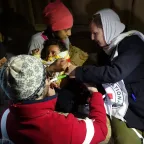
… high number of health workers quitting their jobs, which then impacts the delivery of … high number of health workers quitting their jobs, which then impacts the delivery of …

A devastating earthquake in Afghanistan’s eastern province of Paktika on 22 June has claimed the lives of more than 1,000 people and injured even more. Following the deadly quake, the Afghan Red …
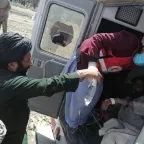
Explosive ordnance disposal (EOD), the procedure that renders explosive material safe, evokes images of wires, explosives, protective equipment and delicate procedures. Real-life training for such …
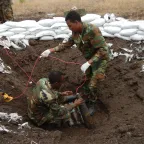
Samah Hassan, from Taiz, Yemen Samah Hassan is from Taiz, but conflict forced her to move to Sana’a. “My life was so difficult before I got the prosthesis; I had to struggle in my society as a …
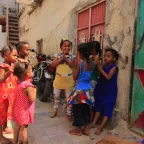
Try one of the following resources:
Created in 1863, the ICRC library, alongside the ICRC archives, provides an indispensable documentary reference on the organization itself and international humanitarian law.
International humanitarian law is based on a number of treaties, in particular the Geneva Conventions of 1949 and their Additional Protocols, and a series of other instruments.
Customary international humanitarian law consists of rules that come from "a general practice accepted as law" and that exist independent of treaty law.